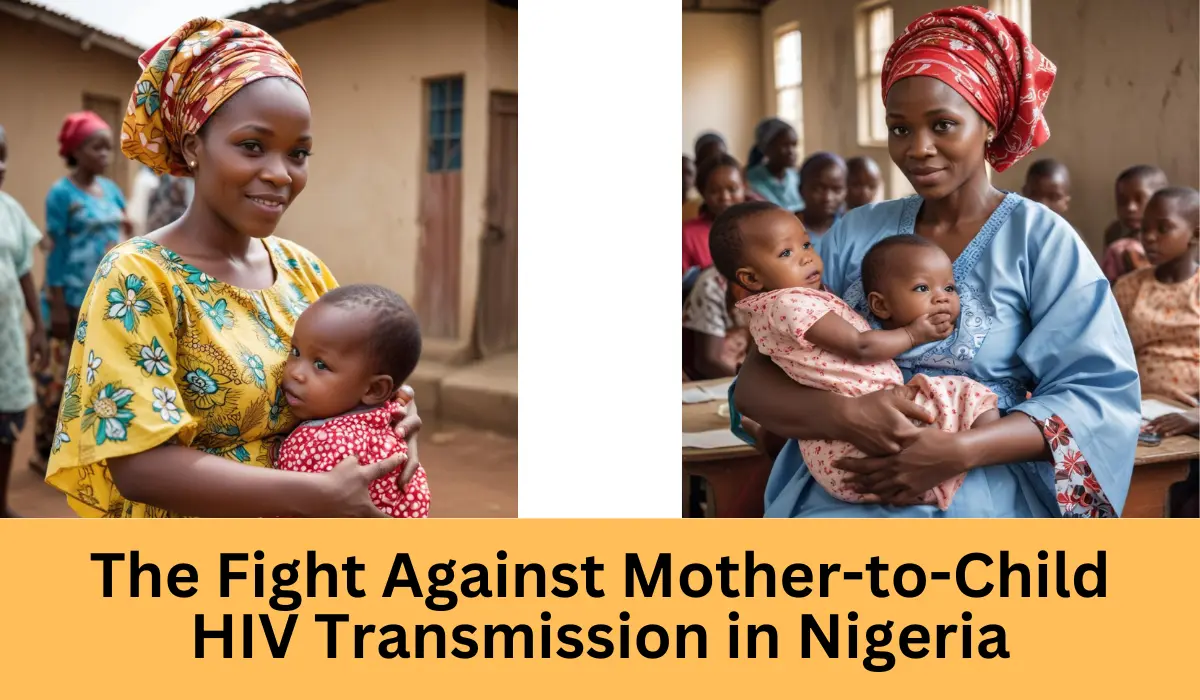Innovative Baby Shower Toolkit Promotes HIV Prevention
Introduction
The prevention of mother-to-child HIV transmission is a crucial health priority in Nigeria. Health experts and organizations are advocating for enhanced measures to combat this issue, emphasizing the importance of educating pregnant women about HIV prevention. Recently, a significant step forward was taken with the launch of a baby shower toolkit in Lagos, aimed at utilizing religious institutions to spread awareness and promote antenatal care.
Understanding the Baby Shower Toolkit Initiative
A Collaborative Effort to Save Lives
The “Dissemination of Toolkit for the Implementation of Baby Showers in Congregate Settings for the Prevention of Mother-to-Child HIV Transmission” event marked the unveiling of this innovative initiative. The Centre for Integrated Health Programmes, the National AIDS and STI Control Programme, and the United States Centers for Disease Control and Prevention, Nigeria, joined forces to develop this toolkit. The primary goal is to engage religious leaders in educating their congregations about the prevention of HIV transmission from mother to child.
Key Features of the Baby Shower Toolkit
Dr. Bola Oyeledun, CEO of the Centre for Integrated Health Programmes, highlighted the toolkit’s comprehensive approach. It includes detailed guidelines for organizing baby showers, managing group sizes, and training health assistants. By targeting women through religious leaders, the toolkit aims to reach a broader audience, ensuring that more pregnant women receive the necessary information and support.
The Role of Health Experts and Stakeholders
Importance of Knowing HIV Status
Dr. Timothy Ifuntoye, US CDC Nigeria Representative, emphasized the critical importance of every woman knowing her HIV status before, during, and after pregnancy. Early detection and preventive measures can significantly reduce the risk of mother-to-child transmission. Recent data underscores the urgency of this initiative, as a significant number of those affected by HIV in Nigeria are women and children.
Collaboration for Successful Implementation
The successful implementation of the baby shower toolkit relies on the collaboration of various stakeholders. Dr. Hafsat Iyanda, PMTCT Head of the National AIDS and STI Control Programme, highlighted the role of religious communities in supporting this initiative. By providing standardized sites for testing and treatment, places of worship can play a pivotal role in preventing mother-to-child transmission of HIV.
Why Vulnerable Groups Need Covid-19 Booster Dose Now?
Addressing the Challenges and Gaps
Dual Benefits of the Initiative
Dr. Folake Amemasheun, CEO of the Lagos State AIDS Control Agency, pointed out that the initiative not only prevents mother-to-child transmission of HIV but also addresses gaps in pediatric antiretroviral therapy (ART). Expectant mothers are provided with “mama packs” containing essential delivery supplies, making the program both practical and supportive.
Bridging the Prevention Gap
The Federal Government has expressed concern over Nigeria’s low rate of mother-to-child HIV transmission prevention. While the international prevention rate stands at 95%, Nigeria’s rate is only 35%. Dr. Tunji Alausa, Minister of State for Health and Social Welfare, called for immediate action to improve these rates, deeming the current situation unacceptable.
National and International Support
Investment in HIV Elimination
Funmi Adesanya, Country Coordinator of PEPFAR, emphasized the substantial investment made by the US government to combat HIV in Nigeria. Over the past 21 years, PEPFAR has invested $8.3 billion to eliminate HIV as a public health threat by 2030. This financial support is crucial in advancing initiatives like the baby shower toolkit.
Commitment to Ending AIDS
Dr. Leo Zekeng, Country Director of UNAIDS, stressed the need for a committed effort to reduce mortality among women and children. He believes that with dedicated action, it is possible to end AIDS by 2030. Similarly, Dr. Olufolake Abdulrahman, wife of the governor of Kwara State and Chairperson of the Nigerian Governors’ Spouses Forum, called for comprehensive healthcare programs and state insurance policies to support mothers.
What nutrients help maintain body cells and tissues?
Conclusion
The prevention of mother-to-child HIV transmission is a pressing issue in Nigeria, but with collaborative efforts and innovative initiatives like the baby shower toolkit, significant progress can be made. By engaging religious leaders and providing essential resources, this initiative has the potential to save lives and reduce the prevalence of HIV among women and children. With continued support from national and international stakeholders, Nigeria can move closer to achieving its goal of eliminating mother-to-child HIV transmission.

